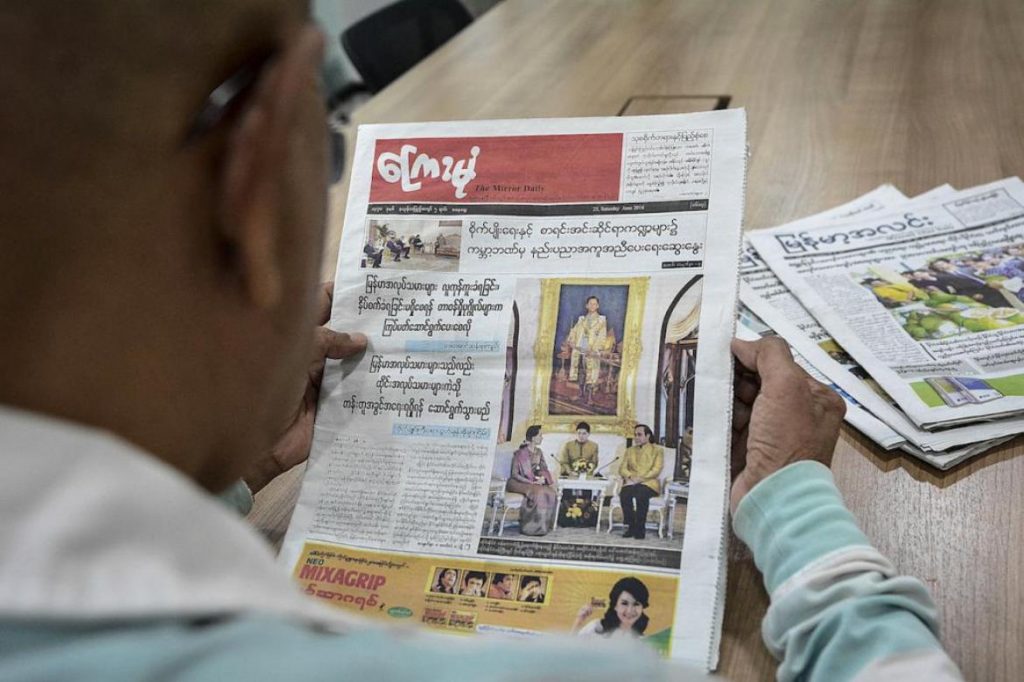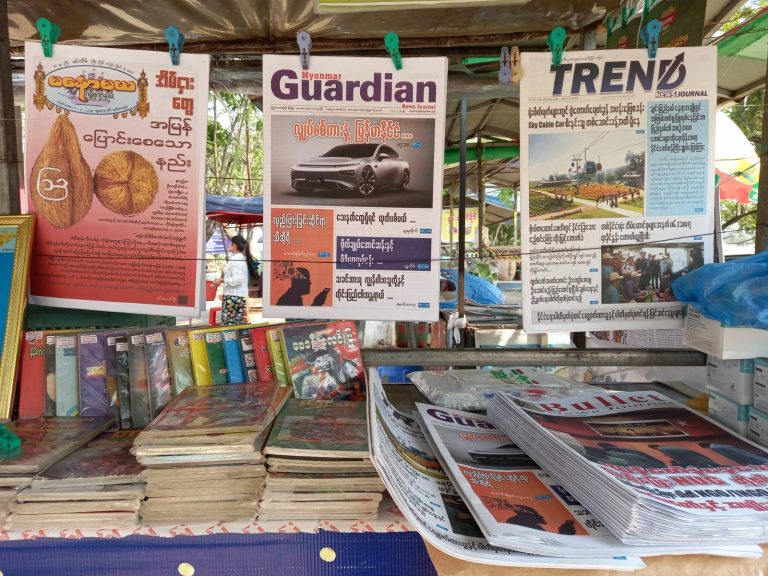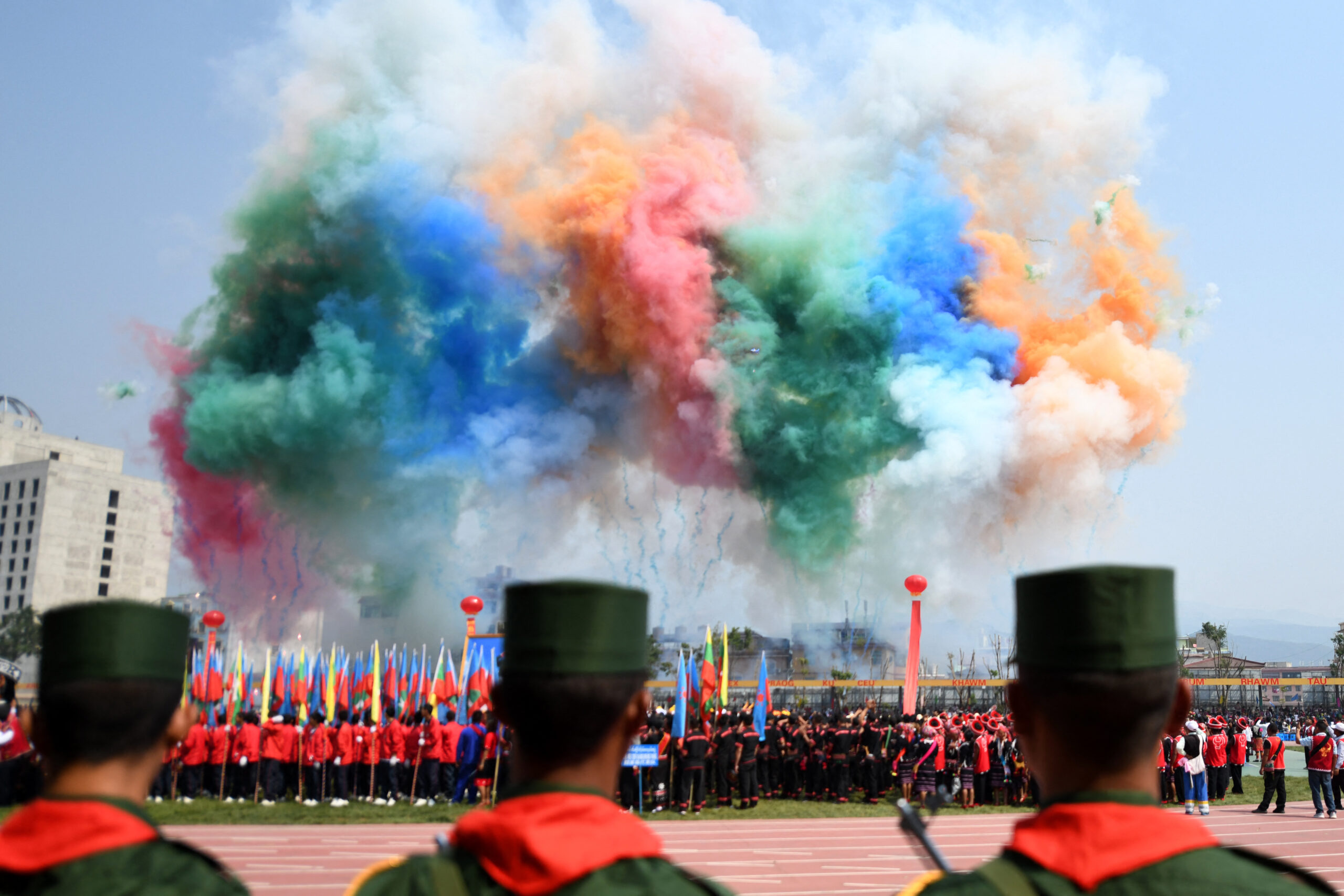By FRONTIER
YANGON — A study of media habits in Myanmar has found that many consumers believe state-owned newspapers and broadcasters provide the most trustworthy and reliable news and information.
Other findings were that consumers preferred locally-based media and news on topics relating to their lives, and that although television remained the most popular news medium, social media, and Facebook in particular, were catching up.
The study, “Myanmar’s media from an audience perspective”, provides insights into people’s media habits and their understanding of news and information.
It says the abolition of pre-publication censorship in 2012 and the opening of the telecommunications sector the following year have resulted in a more diverse media landscape with a growing number of media products on a variety of platforms.
Support more independent journalism like this. Sign up to be a Frontier member.
An objective of the study, by Denmark-based International Media Support, Sweden-based Fojo Media Institute, and Enlightened Myanmar Research Foundation, was to explore what the changes to the media environment have meant for news consumers.
One of the most interesting findings of the study concerned trust.
“People’s trust in media differs, but many tend to see state-owned media as the media that delivers the most trustworthy and reliable news and information,” said a statement released to mark the launch of the study last month.
IMS programme development advisor Ms Emilie Lehmann-Jacobsen said state-owned media was seen as a trusted source “especially when it comes to official information like salary levels and education entry requirements”.
This was most likely because state-owned media had been the only source of information in Myanmar for decades and was therefore a media source “that people naturally turn to”, she said.
The study also found a clear preference for locally-based media.
“Yangon-based media is not a relevant news source to many people living outside the bigger cities. People feel that these media do not present them with news or information that relates to their daily lives and they are often too elitist in their reporting. Relevant news is local news,” the statement said.
The study found that although a wider selection of media products was available, many consumers still had limited access to reliable information.
Lehmann-Jacobsen said the arrival of independent newspapers and the internet, and the emergence of Facebook as the media of choice, had altered the way people consume news and receive information in Myanmar.
“Facebook clearly helps to fill the information gaps around the country – especially in rural areas. It provides news faster than any other media,” she said.
Although only 34 percent of the population had a Facebook profile, the study showed that the reach of the platform was “far bigger”.
However, the study found that although Facebook helped to fill an information void, access to reliable information that could be verified remained limited.
“Many people are aware that you cannot believe everything you read on Facebook, but with few or no options to fact-check information available to them, they have to make do with what is easily accessible,” said Lehmann-Jacobsen.
The study, which involved interviews with 168 people in Yangon and Mandalay regions and Kachin and Rakhine states, also revealed differences between men and women’s perceptions of news.
“Women often associate news with topics such as education and health, whereas men are more interested in economy and politics,” said Lehmann-Jacobsen.
“This reflects the traditional gender roles which are still evident across the country where men are often more involved in decision making groups or communities and women are often caretakers of the family,” she said.
The study also detected differences between rural and urban audiences.
In rural areas, people were more inclined to follow news about the weather because of the implications it can have for their crops and livelihoods.
In urban Yangon and urban Mandalay, the study found that people were more interested in a broader range of topics, such as politics, the economy, culture and entertainment.
However, younger research participants in urban areas were found to place emphasis on such “softer” news topics and were more inclined to associate stories about celebrities as news than older participants.
“Local conditions and individual priorities highly frame the perception of news,” the study said.
Local news was clearly preferred to more general national news as it was difficult for people to concern themselves about events happening far from their homeland unless they saw a connection to their lives.
“Relevance is the news criterium most important to people when prioritizing information flows and selecting news to engage with,” said the study, which concluded with recommendations for media houses, journalists, and media development groups and learning institutions.







